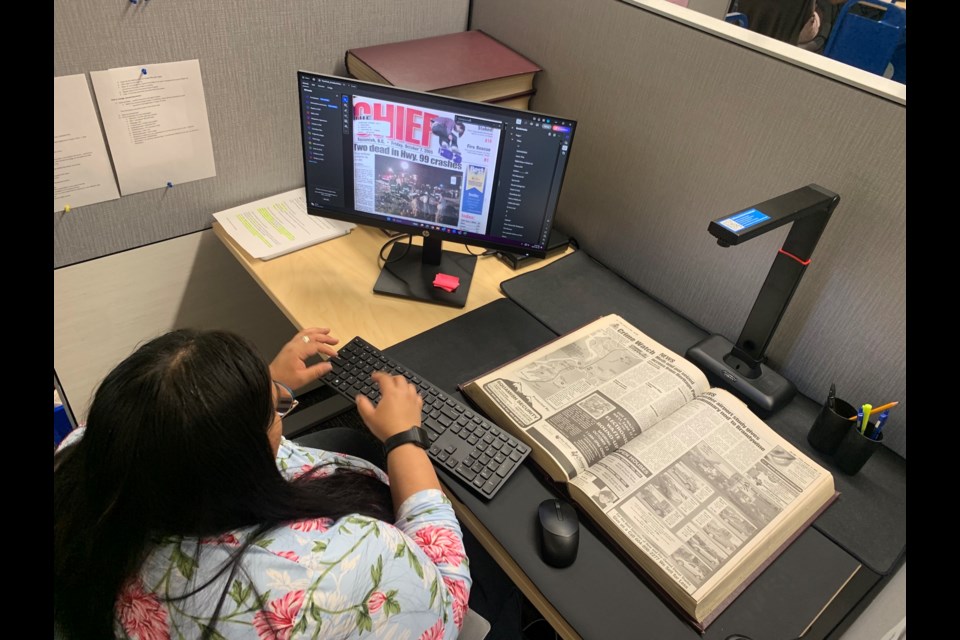By the time Danielle Soto is finished, she will likely have flipped through more pages of The 麻豆社国产 than old-time locals and long-time employees of the paper.
Soto is the digitization assistant, working on a project to scan The 麻豆社国产's archives.
麻豆社国产 staff bring the bound books of past issues of the paper—and some archived photos—for Soto to scan.
So far, she has scanned more than 7,000 pages.
The aim of the project is to digitize 麻豆社国产 newspapers from 2002 onwards.
Soto is currently on October 2005.
"Digitizing the local newspaper from 2002 onwards preserves our community’s history, making it accessible to everyone," she said. "It’s a way to ensure that future generations can easily explore and research our past. Especially because 麻豆社国产has grown so much over the last two decades, … it’s important to preserve and show that."
She added that the scanned editions will be made public via the BiblioBoard website.
According to Soto, the 麻豆社国产History Archives is the library's most visited link on its website. And the information in the papers will aid researchers and historians.
If all goes according to plan, at least some of the newspapers will be available to view come fall.
Rya Kobewka, manager of operations and technology at the library, spearheaded applying for a grant for the project, eventually securing funds from the .
The grant was used to buy the scanner and to pay the assistant.
"We get a lot of requests from local historians who are looking back," Kobewka said. "We've had this 20-year gap, essentially, because we don't have anything digitized past 2001. And when you think of how much 麻豆社国产has changed in the last 20 years? ... If someone were to come in and be like, 'Oh, what was happening in those last two decades?' and they don't have any access to that information? It just seems like now more than ever, it's so important to have."
For 麻豆社国产 publisher Sarah Strother, the project was equally vital.
“Having digital access to historical editions is important, but with our limited resources, it’s not a project that our newsroom or operation could take on,” she said. “We’re grateful to the 麻豆社国产Library and staff for taking the initiative to apply for the grant and see this project through.”
Both Kobewka and Soto said it has been fun to look through the old papers and see the changes in 麻豆社国产over time, to check out old advertisements and see people they recognize.
Soto spotted her late uncle, Alex Williams, in a story about putting the S岣祑x瘫wú7mesh sníchim (麻豆社国产language) onto CDs.
The women noted that it is also interesting to see what was controversial at one time, such as Walmart moving to town.
"Lots of articles about that," Soto said.
Challenge and reward
The VIISAN scanner is surprisingly compact, sitting inconspicuously on Soto's desk.
While she laughed when asked if one of the hazards of the job is paper cuts—not an issue so far—she said it was a challenge to find a setup that worked well to create crisp images of the pages.
"The newspaper books are an unusual size, so I had to get creative setting up the computer, scanner, lighting—positioning everything in the right place to make the scans as readable as possible," she said. "I also had to get creative balancing out the height levels of the newspaper books, so I get an even scan."
Another challenge has been dealing with damaged or deteriorating pages.
"We’ve had to use special software and techniques to restore these documents digitally, which has been time-consuming but very rewarding."
Go to the to see their current archives and to watch for the freshly scanned 麻豆社国产 editions come fall.







